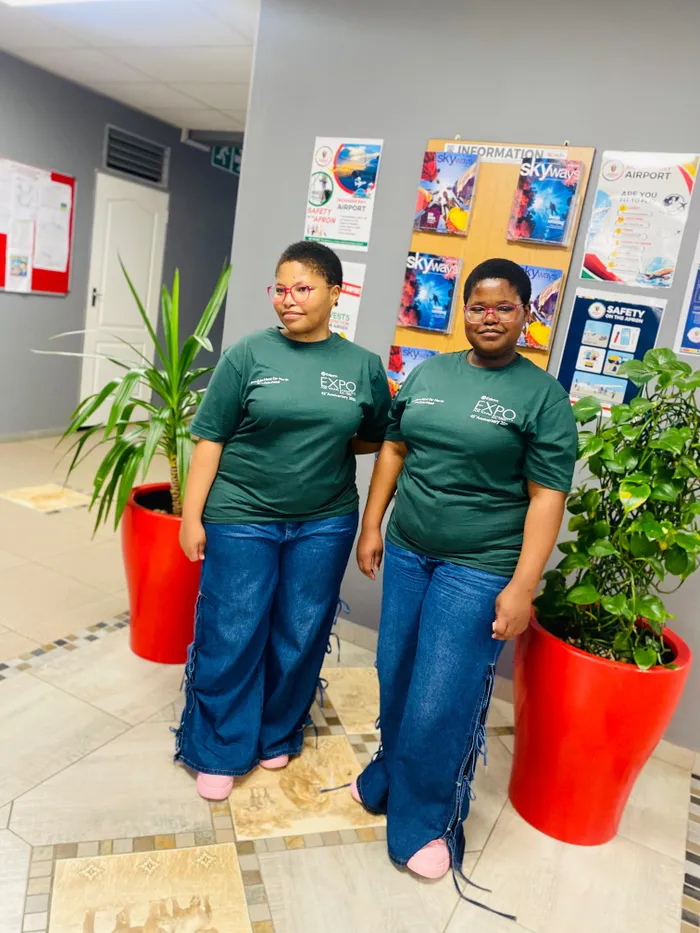
Simesihle Khuzwayo and Melokuhle Khuzwayo, Grade 12 learners at King Bhekuzulu High School in Nongoma, were awarded full bursaries for their project at the Eskom Expo International Science Fair.
Image: Supplied
Melokuhle and Simesihle Khuzwayo, Grade 12 twins from King Bhekuzulu High School in Nongoma, northern KwaZulu-Natal, are showing how curiosity and determination can overcome limited resources.
Their project, “Double Trouble Double Solution: Neutralising Acid & Plastics with Nature’s Help,” earned them full bursaries from Eskom at this year’s Eskom Expo International Science Fair. In addition, Simesihle was a recipient of the Babcock International bursary based on what she wants to study next year.
For Melokuhle, science became a passion in Grade 10.
“Learning more about Chemistry really sparked my interest. When my sister, Simesihle, suggested that we enter the Eskom Expo in 2023, I agreed, and we worked on our first group project under the Energy category. Although we only reached the regional Eskom Expo and didn’t advance to ISF, we earned a Silver Medal and the Best in Energy award,” she said.
The following year, the twins switched focus to Agricultural Science. “Living in a small community, we experience daily water shortages, polluted water, and changes in crop colour. We knew our soil was suitable for farming, so we asked ourselves if the problem might be the water instead,” Melokuhle said.
Their research explored autolysed biomass extract (ABE), a natural product used in food processing, as a low-cost solution to neutralise acidic water and remove microplastics.
Simesihle added: “We noticed the yellowing of leaves of our plants at home and had to find out what exactly caused it. It turned out to be the acidic water. After extensive research, we found out about ABE and its use in food production, and we had to research its efficacy for water neutralisation and microplastic capturing.”
Despite their scientific success, they said preparing for final exams is now their main priority.
“Preparations for the final exams are ongoing. With less than ten days to go, there is little time to rest. As soon as we return home from school, we continue studying diligently, making every moment count,” Melokuhle said.
Simesihle highlighted the challenges of studying science at a rural school: “The challenges I face when studying science at school are the lack of proper equipment in our labs. Whenever we do practical investigations, you have to somehow imagine the results and not see them practically, which can be demotivating.”
The twins have ambitious plans. Melokuhle hopes to study Mining Engineering, earn a PhD, and eventually open her own mine.
“I enjoy teaching and sharing knowledge, so I hope to become a lecturer as well,” she said.
Simesihle plans to study Mechanical Engineering next year and hopes to combine engineering and medicine to strengthen South Africa’s health sector.
Both stress that determination matters more than access to resources. “Believe in yourself. That small idea you have is valuable, nurture it, seek assistance, ask for help, and pursue it with dedication and passion. Nothing is impossible if you commit to making it happen,” Melokuhle said.
Simesihle added: “Science is not difficult; it exists as a part of humanity. You do not need a fancy lab to venture into science, you just need your imagination, knowledge, and an innovative mind. It’s all about failing and trying again.”